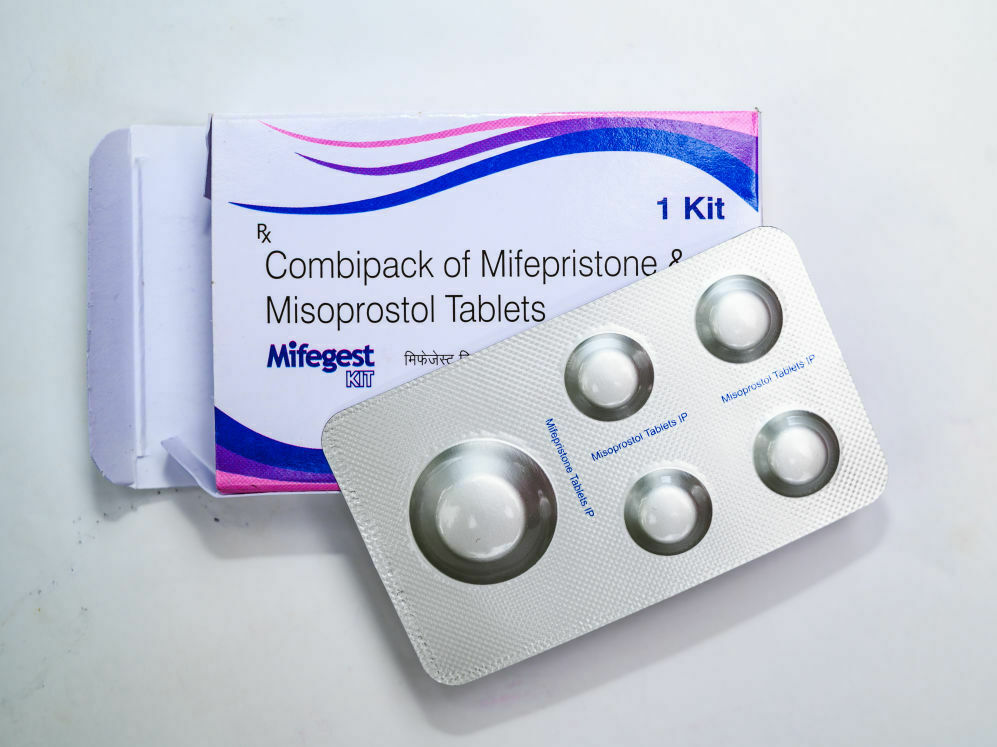Need access to abortion pills? Consider Aid Access or Women on Web. These organizations provide telehealth services and ship medication discreetly. They offer comprehensive online consultations to confirm eligibility and ensure safe usage.
Important: Before ordering, carefully review their websites. Understand the process, including the required medical information and potential side effects. These platforms prioritize patient safety and provide detailed instructions. Always follow their guidance.
Privacy is paramount. Both Aid Access and Women on Web employ robust security measures to protect your personal information. Your details remain confidential throughout the process. Expect clear communication regarding shipping times and potential delays.
Remember to consult your personal physician if you have any questions or concerns beyond what’s provided by the telehealth platform. They can address specific medical needs and offer additional support. This is a crucial step for a safe and informed decision.
- Buy Abortion Pills Online: A Comprehensive Guide
- Identifying Reputable Online Providers
- Understanding the Different Types of Abortion Pills
- Medication Abortion: The Process Step-by-Step
- Before You Begin: Preparation
- Taking the Medication
- Aftercare
- Follow-Up
- Potential Side Effects
- Potential Side Effects and Risks
- Post-Procedure Care and Follow-Up
- Legal Considerations and Access to Care
- Finding Support and Resources
- National and International Hotlines
- Online Support Communities
- Local Resources
- Financial Assistance
- Alternatives to Medication Abortion
Buy Abortion Pills Online: A Comprehensive Guide
First, confirm your eligibility for medication abortion. Check your gestational age – mifepristone and misoprostol are most effective before 10 weeks of pregnancy. You’ll need an online consultation with a licensed telehealth provider to discuss your medical history and confirm your pregnancy.
Reputable telehealth platforms verify your identity and provide a virtual consultation. Expect questions about your health, pregnancy, and preferences. The provider will determine if medication abortion is safe and appropriate for you. They’ll guide you through the process, answering your questions and addressing your concerns.
After the consultation, the platform will likely dispatch your medication. Expect delivery within a few business days, depending on your location and shipping method. Track your order meticulously. Always choose a provider that offers secure and discreet shipping.
Follow the provider’s instructions carefully. They’ll provide detailed guidance on taking the pills, including dosage, timing, and potential side effects. Report any unusual symptoms immediately to your healthcare provider. The instructions will cover managing potential side effects like cramping and bleeding.
Post-abortion care is vital. Your telehealth provider will explain post-abortion care and what to expect in the following weeks. This may include follow-up appointments or tests to ensure the procedure was successful and you are recovering well. Contact your provider immediately if you have any complications.
Remember to research telehealth platforms thoroughly. Verify their licensing and read patient reviews before using their services. Confirm their privacy policies regarding your personal and medical data. Select platforms with a proven track record of successful and safe medication abortions. Prioritize your safety and well-being throughout the process.
Identifying Reputable Online Providers
Check for licensing and accreditation. Look for providers registered with relevant health authorities in your country or region. Verify their legitimacy through independent sources.
Examine their website carefully. A professional site displays clear contact information, including a physical address, phone number, and email address. Look for secure payment gateways (HTTPS) to protect your personal and financial data. Transparency regarding their processes and pricing is key.
Read reviews and testimonials from past patients. Independent review platforms provide valuable insight into the experiences of others. Pay attention to both positive and negative feedback, searching for patterns or recurring issues.
Confirm their physician consultation process. Reputable providers offer telehealth consultations with licensed medical professionals to assess your eligibility and address any questions or concerns. Verify the physician’s credentials.
Understand their privacy policy. Ensure your data is protected and handled in accordance with relevant data privacy regulations. A clearly defined privacy policy demonstrates commitment to patient confidentiality.
Compare prices and services offered. Be wary of unusually low prices, which may indicate compromised quality or safety. Clarify all costs upfront to avoid unexpected charges.
Prioritize your safety. Your health and well-being are paramount. Only use services that meet the highest standards of safety and professionalism. Don’t hesitate to seek additional opinions or contact your doctor if you have any doubts.
Understanding the Different Types of Abortion Pills
The two main types are mifepristone and misoprostol. Mifepristone blocks the hormone progesterone, preventing the pregnancy from continuing. Misoprostol causes contractions to empty the uterus.
These medications are often used together in a medication abortion. The exact dosage and administration method vary depending on the gestational age and individual circumstances, so always follow your healthcare provider’s instructions carefully.
Some providers might prescribe mifepristone alone for early abortions, while others use a combination regimen for later stages. The timing and method of administration differ depending on the protocol your provider follows.
Misoprostol can also be used alone, although its effectiveness decreases as gestation advances. It’s vital to discuss all options with your healthcare provider to determine the best approach for your situation.
Remember, this information is for educational purposes only and does not constitute medical advice. Always consult a qualified healthcare professional for personalized guidance and care. They will help you determine the appropriate type and dosage of medication based on your unique circumstances.
Medication Abortion: The Process Step-by-Step
First, you’ll need a telehealth consultation with a licensed provider. This usually involves an online questionnaire and a virtual appointment to confirm your pregnancy and eligibility for medication abortion.
Before You Begin: Preparation
Follow your provider’s instructions carefully. You’ll receive detailed guidance on preparing for the procedure, including dietary recommendations and medications to avoid.
You should also gather comfortable clothing and pain relievers, as per your provider’s suggestions.
Taking the Medication
Once approved, your medication will be shipped to your address discreetly. You’ll receive clear, step-by-step instructions on how and when to take the pills. Follow them precisely.
Mifepristone, the first pill, is typically taken orally at home. You may experience mild side effects like nausea or cramping.
Misoprostol, the second medication, is usually taken at home a few days later. It causes the uterus to contract and empty. Expect heavier bleeding and cramping than with mifepristone. This is normal.
Aftercare
After taking the medication, expect some bleeding and cramping. Rest is recommended. Use sanitary pads; tampons are not recommended during this time. Your provider will provide post-procedure care instructions, including monitoring bleeding and recognizing potential complications.
Contact your provider immediately if you experience severe bleeding (soaking more than two pads per hour for two hours consecutively), high fever, or persistent severe pain.
Follow-Up
A follow-up appointment, often virtual, is usually scheduled to ensure the abortion is complete and to address any questions or concerns. This is part of standard care.
Potential Side Effects
Common side effects: Cramping, bleeding, nausea, diarrhea, headache. These usually resolve within a few days.
Less common side effects: Fever, dizziness. Contact your provider if any side effects are severe or persistent.
Remember: This information is for guidance only. Always consult with a healthcare provider for personalized medical advice and care.
Potential Side Effects and Risks
Taking abortion pills involves potential side effects. Most are mild and temporary, but understanding them is crucial.
Common side effects include cramping, bleeding (often heavier than a normal period), nausea, vomiting, diarrhea, and dizziness. These typically subside within a few days. Severe abdominal pain, heavy bleeding (soaking more than two maxi-pads per hour for several hours), fever above 100.4°F (38°C), or signs of infection (e.g., foul-smelling discharge) require immediate medical attention.
Rare, but serious complications can occur. These include incomplete abortion requiring further medical intervention, infection, and heavy bleeding necessitating blood transfusion. The risk of these complications increases with gestational age.
Certain health conditions can increase the risk of complications. Conditions like ectopic pregnancy (pregnancy outside the uterus), severe heart or lung disease, certain blood clotting disorders, or current severe infections may pose increased risk. If you have pre-existing health problems, consulting a doctor before taking the pills is strongly advised.
| Side Effect | Frequency | Severity | Action |
|---|---|---|---|
| Cramping | Common | Mild to moderate | Over-the-counter pain relief |
| Bleeding | Common | Variable | Monitor; seek help for excessive bleeding |
| Nausea/Vomiting | Common | Mild to moderate | Avoid strong smells; take medication as directed |
| Fever/Infection | Rare | Severe | Seek immediate medical attention |
| Incomplete Abortion | Rare | Severe | Requires further medical intervention |
Remember, this information is for general knowledge and does not substitute professional medical advice. Always consult with a healthcare provider to discuss your individual circumstances and risks before considering medication abortion.
Post-Procedure Care and Follow-Up
Rest for at least 24 hours after taking the medication. Drink plenty of fluids to stay hydrated.
Expect some cramping and bleeding. Use over-the-counter pain relievers like ibuprofen for discomfort. The bleeding might last for a few weeks; contact a healthcare professional if bleeding is heavier than a regular menstrual period or lasts longer than three weeks.
- Keep sanitary pads on hand for bleeding.
- Avoid using tampons or menstrual cups.
- Avoid strenuous activity for at least 24 hours.
You might experience nausea or vomiting. Sipping clear liquids, such as water or broth, can help.
- Follow the specific instructions provided with your medication.
- Contact your healthcare provider immediately if you experience severe pain, fever, heavy bleeding, or signs of infection (e.g., foul-smelling discharge, significant abdominal pain).
- Schedule a follow-up appointment with your doctor or a healthcare provider to confirm the procedure’s completion and to discuss any questions or concerns.
After the bleeding subsides, you can resume your normal activities. Consider using contraception to prevent future unintended pregnancies, if you desire.
Remember, proper post-procedure care is crucial for your well-being. If you have any questions or uncertainties, don’t hesitate to seek professional medical guidance.
Legal Considerations and Access to Care
Seek legal counsel in your jurisdiction before purchasing abortion pills online. Laws vary significantly by country and state/province. Some regions heavily restrict or completely prohibit access, while others offer varying levels of protection.
Understand your rights regarding access to abortion care. Research your local reproductive healthcare options, including clinics and telehealth providers. Many offer confidential services and support.
If you encounter legal issues, contact a reproductive rights organization or a lawyer specializing in reproductive health law. These resources can offer guidance and representation.
| Region | Legal Status (Summary – Consult local laws for details) | Resources |
|---|---|---|
| United States | Access varies widely by state; some states have near-total bans. | National Abortion Federation, Planned Parenthood |
| Canada | Federally legal; provincial variations in access to services. | Planned Parenthood Canada |
| United Kingdom | Legal under certain conditions. | British Pregnancy Advisory Service |
| France | Legal. | (Insert relevant French resource here) |
Remember, obtaining abortion pills illegally carries significant risks. These risks include receiving counterfeit medication, facing legal penalties, and experiencing health complications without proper medical supervision.
Prioritize your safety and well-being. Safe access to abortion care is a fundamental right for many, but navigating legal complexities requires careful planning and informed decision-making.
Finding Support and Resources
Connect with trusted organizations offering confidential support. Planned Parenthood provides comprehensive sexual and reproductive health services, including counseling and support. Their website (plannedparenthood.org) offers a wealth of information and resources.
National and International Hotlines
If you need immediate support, call the National Sexual Assault Hotline at 800-656-4673. For international resources, visit the website of the International Planned Parenthood Federation (IPPF). They offer a directory of reproductive health organizations worldwide.
Online Support Communities
Many online forums and communities offer support for individuals facing unplanned pregnancies. Exercise caution when sharing personal information online; prioritize verified and reputable sources. Look for communities moderated by healthcare professionals or experienced advocates.
Local Resources
Your local health department or community clinics often provide free or low-cost reproductive health services, including counseling and support. Search online for “[your location] reproductive health services” to find options near you. Remember to verify the credibility of any organization before engaging with their services.
Financial Assistance
Several organizations provide financial assistance for reproductive healthcare. Research programs offered by local charities or national foundations. Consider contacting your health insurance provider to understand your coverage options.
Alternatives to Medication Abortion
Consider adoption: Many organizations provide comprehensive support throughout the pregnancy and adoption process, offering counseling, financial assistance, and connecting expectant parents with adoptive families. Explore options like adoption agencies and faith-based organizations.
Explore parenting resources: If you choose to raise your child, numerous resources are available. These include:
- Government programs: WIC provides nutritional support, and Medicaid offers healthcare coverage.
- Nonprofit organizations: Many charities offer assistance with childcare, housing, and other necessities.
- Local community centers: These often host parenting classes and support groups.
Seek long-term birth control: Preventing future unintended pregnancies is crucial. Talk to your doctor about various birth control options, including IUDs, implants, and pills. Choose a method that best suits your lifestyle and preferences.
Access counseling services: Facing an unplanned pregnancy can be emotionally challenging. Professional counseling offers a safe space to process your feelings and make informed decisions. Look for licensed therapists specializing in reproductive health.
Contact a crisis pregnancy center: These centers offer free services like pregnancy tests, ultrasounds, and counseling. They can provide information on all your options and support you through your decision.
- Identify local centers through online searches or referrals from your healthcare provider.
- Schedule a consultation to discuss your individual needs and circumstances.










